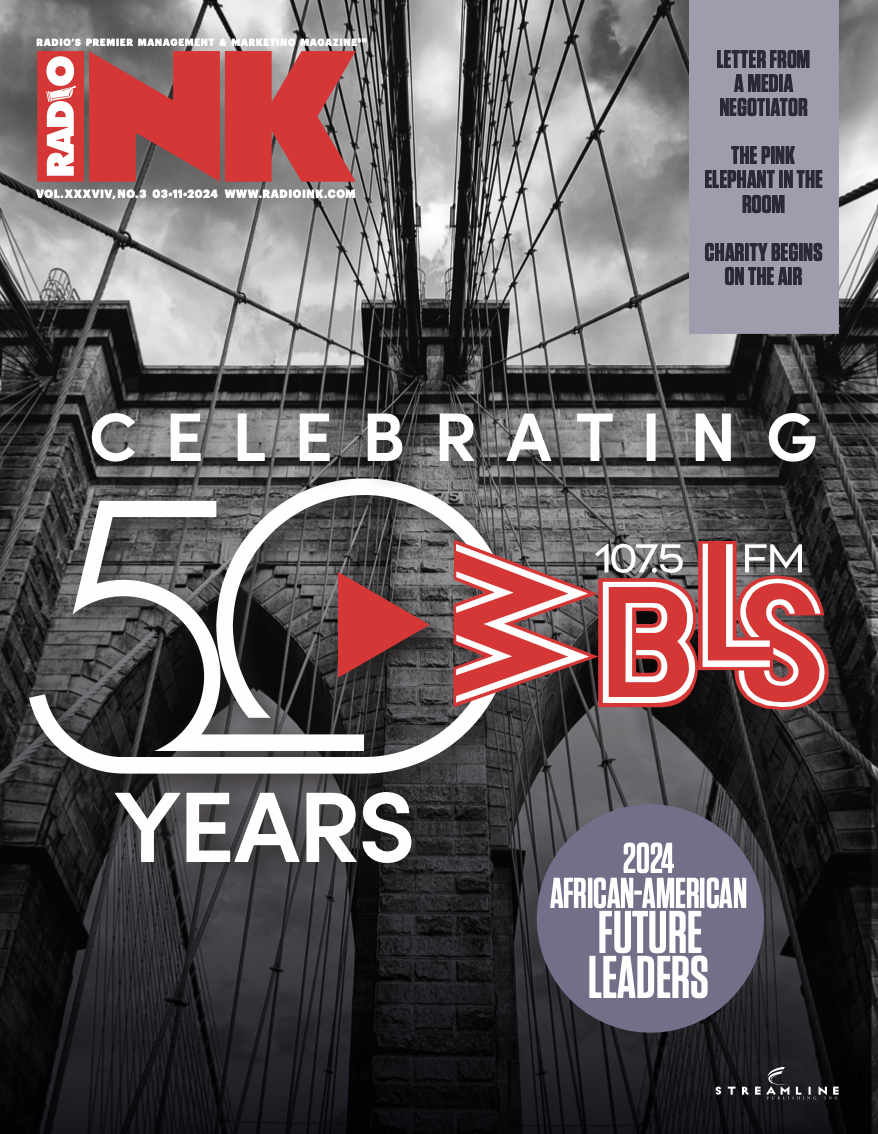
(Mike McVay) Everything changed in late March and early April 2020. Suddenly people were working from home. Makeshift studios were assembled in clothes closets and spare bedrooms. Kitchen tables became desks. Commercials were produced without flair and few were more than voice-over-music. Sellers worked the phones to keep clients. Engineers were heroes as they figured out how to enable remote scheduling of traffic logs, remote music scheduling, and the use of digital programs to share commercial and promo copy. Program Directors worked to keep their talent engaged and brainstormed ways for multi-talent shows to sound as good as they do when in the studio.
Fast forward to today and some shows, but not all, have returned to the studio while most other roles remain working in a remote world. During that time most have mastered working remotely. There are a very few companies who never worked fully remotely, but in those cases, some used plexiglass screens, mandatory masking and in some cases, (once vaccines became available), mandatory vaccination. Interview five different people in a radio cluster and you may get five different opinions as to how successful remote broadcasting has been.
There will be a time when this pandemic ends. No one knows when that will be, how many variants will come and go before we hit herd immunity, or how we’ll eliminate this virus globally given the way citizens of the Earth travel today. The Spanish Flu, starting in 1918, lasted for a little more than two years. People didn’t have the modes of expedient travel that we have today, so it was easier to contain globally. We will reach herd immunity because sooner or later we’ll have enough people who get sick and have the antibodies or people will get vaccinated. The Spanish Flu took the lives of 500 million worldwide. Estimates of those who died in the United States was 675,000. We’ve topped that number as of this writing with more than 700,000 dead in the USA. The point being that we will eventually hit herd immunity.
Coronavirus stats are not what this article is about. It’s about the cause and effect. The Coronavirus forced us to work from home. There are some positives in regard to productivity. However, one of the things that we’ve lost by working remotely is the creative environment that exists when creative people are together in one place. What we’ve lost by working remotely is experiencing a culture, teamwork, feeding off of each other’s enthusiasm, and esprit de corps. We’ve lost the ability to mentor, train, improve and positively impact one another. By not being together we’ve lost the ability to have spontaneous ideation. Our personal lives may be better, but our work output may not be as good.
Talking to clients and friends, they’re faced with talent who want to work from home, promotion people who prefer to start their day from wherever they live, and programmers who have moved significant distances from where they work. Some moved to faraway states. Some moved down the street. The point is that the opportunity to work remotely was akin to kicking an anthill. The ants scattered. Now, a new wrinkle has been added for whenever companies/stations ask their employees to come back to the studio.
It’s true that voice-tracking from remote locations is on the rise. It’s also true that many stations are also using syndicated/network programming to bolster their ratings. If you have a voice-tracked show on your station, you have to treat that remote talent as if they are a member of your staff and keep them informed. If you have a network show, you have to work to localize the show. You cannot flip a switch.
It’s not impossible to build a culture remotely, but it is difficult to build a long-lasting culture and encourage on-going enthusiastic performance when working from anywhere other than the studio. You have to purposely connect, communicate and direct the talent in order for them to have specific clarity on what’s expected of them. If your talent is not coming back to the studio, then you need a plan to create a virtual culture that can make-up for not being together in-person.
I’m sure that my opinion will not be popular with many readers. We’ve become used to working from home in sweats and no socks, avoiding rush hour traffic and the cost of parking & fuel. Enjoying the luxury of being able to tend to children and other family members. To literally feel less pressure because no one is looking over your shoulder. Personally, I enjoy having a home office, but I miss the creative synergy that comes from being with other creatives in one location. Thank goodness for travel.
In some administrative cases, working remotely even leads to being more efficient and effective. The administrative role is very different than the role of talent. It’s not the same for talent. There’s something special about being able to meet with others, hear what’s going on in their lives, ideate on the hot topics and use that information as fodder for show prep. Other people’s lives become content.
There’s a reason that Jimmy Kimmel, Jimmy Fallon, Stephen Colbert and local news broadcasts have their teams and talent back in the studio. There’s a reason that the talent on College Game Day and the NFL Pre/Post-Game shows are together in-person. Same for the MLB as baseball enters the playoffs. There’s a reason that the morning TV shows are together in-person. Their performances are better when together. That starts with being together to prepare, rehearse and take advantage of the creative environment that only comes from being together in the studio.
It’s time to go back work.
Mike McVay is President of McVay Media and can be reached at [email protected]






I think the biggest benefit of having everyone under one roof is an intangible or indirect one. I ran the Jones/Dial Global/Westwood One Format business for 25 years and at its peak, we had 125 or so in house jocks. The culture is something we always worked hard to continuously improve, and seeing each other, joking, coaching, eating together is a big part of that…which has largely gone away. Working out of the spare bedroom is convenient, but does it contribute to that culture aspect of the biz? I agree with you, Mike. Come on back!!!
Thank you Phil. Much appreciated.